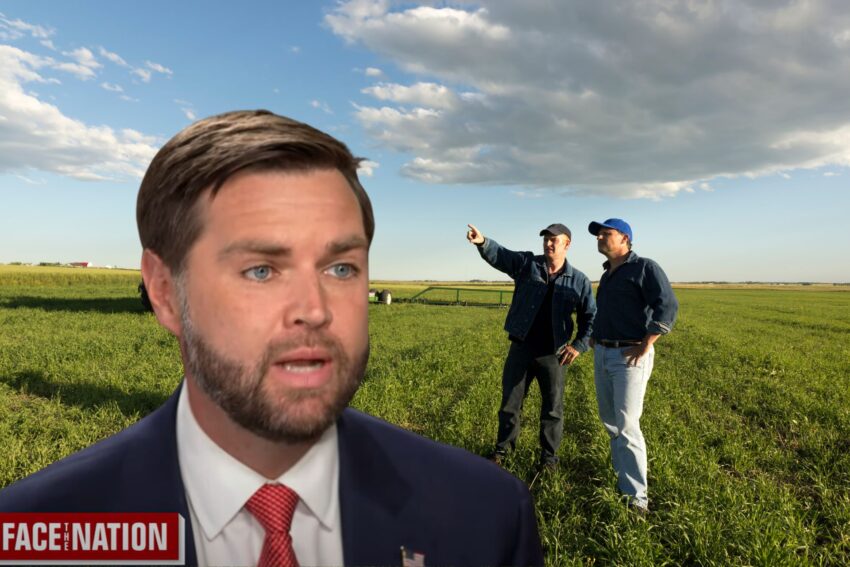Senator JD Vance of Ohio, the Republican vice-presidential nominee, has recently come under scrutiny for his opposition to the U.S. Department of Agriculture’s (USDA) payments to Black farmers. During an interview on CBS’s “Face the Nation,” Vance expressed his concerns about the program, stating that it is “discriminatory” against White farmers.
The USDA’s program in question is designed to provide financial assistance to Black farmers who claim to have faced discrimination and economic disadvantages, particularly because they were denied loans. The USDA recently paid out $2.2 billion through this reparations program, all to non-Whites, almost half of whom were not even farmers but people who just wanted loans to start farming.
Vance argues that the program is unfair to White farmers and represents a form of racism. He claims that the government should not be making decisions based on race and that all farmers should be treated equally.
…I do think that there’s been this thing in America where we’ve said that we should judge people based on their skin color, based on their immutable characteristics, based on things that they can’t control. I frankly think that unfortunately, a lot of people on the left have leaned into this by trying to categorize people by skin color and then give special benefits or special amounts of discrimination. The Harris Administration, for example, handed out farm benefits to people based on skin color. I think that’s disgraceful. I don’t think we should say, you get farm benefits if you’re a Black farmer, you don’t get farm benefits if you’re a white farmer. All farmers, we want to thrive, and that’s certainly the President Trump and JD Vance view of the situation. But I do think unfortunately, when our leaders divide us by race, you’re going to have hate on the left side of the political spectrum. You’re going to have hate on the right side of the political spectrum. We should just judge people based on individual characteristics and based on merit, and that’s certainly what President Trump and I want to do.
Vance continued:
I don’t think you’ve seen anything like what we’ve seen from Kamala Harris when it comes to handing out government benefits based on people’s immutable characteristics. The actual legal enshrinement of discrimination in this country, we haven’t seen anything like in the last 30 or 40 years. Certainly back in the 60s and 50s, we all look at that as a period that we wanted to get away from, and in some ways, the Harris Administration has re-implemented it. I think it’s pretty disgraceful.
When confronted about the negative response he and his wife have received from certain “right-wing” elements like Nick Fuentes, Vance said that he cares more about government-sponsored racism than what individuals have to say.
But if you ask me what I care more about, is it a person attacking me personally, or is it government policy that discriminates based on race? That’s what I really worry about. Is bad government policy that harms people based on their immutable characteristics.
You can watch the whole interview:
This is a fairly bold position to take. From what we saw, AgroWars was the only ag media outlet to even question this discriminatory policy.
Critics of Vance’s position insist that White farmers have historically enjoyed numerous advantages and government support, while Black farmers have faced significant barriers and discrimination. They argue that racial discrimination from government organizations, such as the USDA, are needed to rectify past discriminatory policies, supposedly “leveling the playing field.” They insist that discriminating based on race is wrong but that the only way to solve the problem is through the government discriminating against White people.
Vance’s comments are sure to spark a heated debate about the role of race in government programs and what it truly means to be fair and equitable in the United States. It remains to be seen how Vance’s opposition to the USDA’s payments to Black farmers will impact the Trump-Vance presidential campaign and whether or not his message will be well-received in rural America, where the Harris-Walz campaign is trying to gain support.


